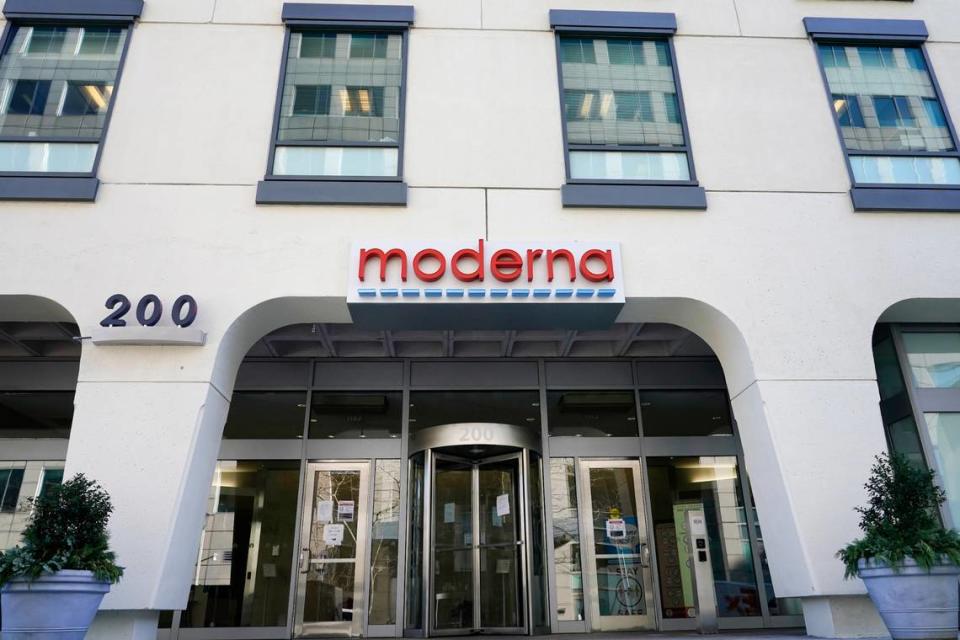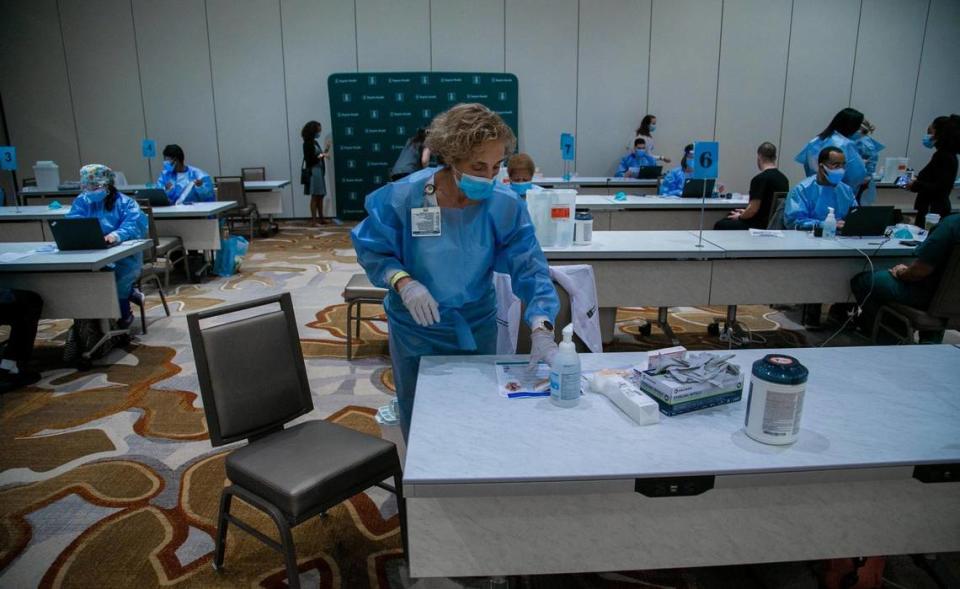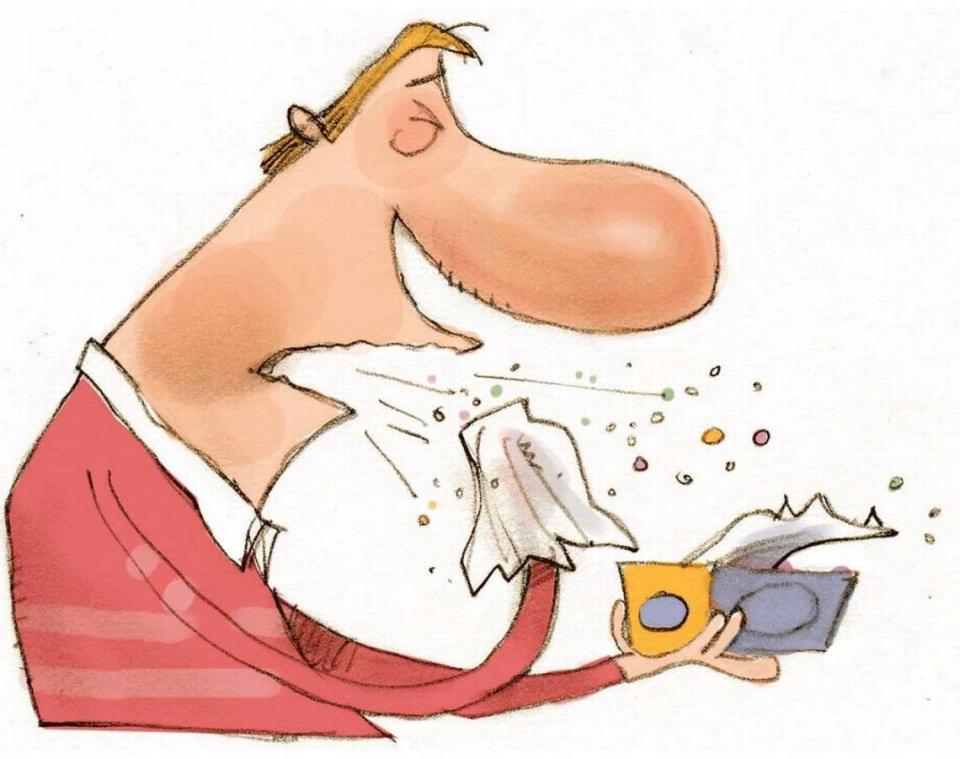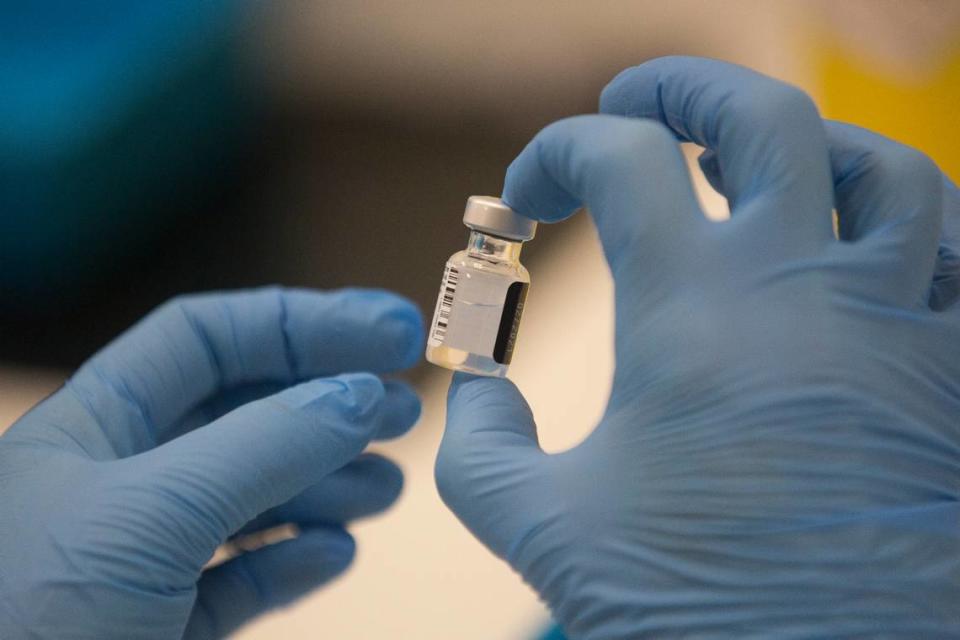Florida will get the Moderna vaccine soon. Who can get it, where and how?
Florida is preparing to send a shipment of Moderna’s COVID-19 vaccine to 173 hospitals across the state soon, including in South Florida.
Hospitals expected to receive the Moderna vaccine include Baptist Health South Florida, University of Miami Health System, Broward Health Medical Center, Hialeah Hospital and Mount Sinai Medical Center in Miami Beach.
All of the Florida hospitals expecting to receive the Moderna vaccine were not part of the “Pfizer Five” that received the first doses of the Pfizer-BioNTech COVID-19 vaccine last week, according to the state.
The Moderna COVID-19 vaccine is the second to receive emergency use authorization in the country by the Food and Drug Administration and can be administered to people 18 and older. Florida is expecting to receive 367,000 doses of the Moderna vaccine possibly this week.
Here’s what to know about the Moderna vaccine, how it works and where you can get it:
Who can get the Moderna COVID-19 vaccine in Florida?

The Centers for Disease Control and Prevention announced earlier this month that vaccination priority should be given to healthcare workers and residents of long-term care facilities first. Then on Sunday, a CDC advisory panel recommended that next in line should be older adults, ages 75 and older, and “frontline essential workers” including teachers, police and firefighters, and public transit and grocery store workers.
Next would be adults between the ages of 65 and 74, and anyone 16 and older with medical conditions that make them high risk for COVID-19 complications. Once these groups get their shots, the CDC recommends giving the vaccine to other essential workers including people who work in construction, media, the legal sector, and water and waste management.
A draft of Florida’s COVID-19 vaccine distribution plan has similar recommendations. After healthcare workers and residents in long-term care facilities, the state plans to prioritize people 65 and older, those with certain medical conditions and essential workers.
Once these groups get their shots, vaccine supplies would then become available to everyone else, likely in the spring.
Based on the current guidelines, the Moderna vaccine can only be administered to those 18 and older. Gov. Ron DeSantis has also said that all COVID-19 vaccines, including Pfizer and Moderna, will be optional in Florida.
Will students and teachers be required to get the COVID-19 vaccine in South Florida?
Can I pick if I want the Pfizer or Moderna COVID-19 vaccine? Where can I get it and will it cost money?

Currently, you will not have the option to pick if you want the Pfizer or Moderna COVID-19 vaccine. It will depend on which vaccine the facility you go to has, according to the Florida Division of Emergency Management, which is tasked with the state’s vaccine distribution.
You might be able to pick the vaccine you want in the future once the doses are more readily available, a spokeswoman for the state’s emergency management division told the Miami Herald in an email.
The two vaccines are also not interchangeable, which means that if your first shot was the Pfizer vaccine, your second shot cannot be the Moderna vaccine, according to the CDC.
Once hospitals and long-term care facilities have distributed their vaccines, Florida plans to open vaccination sites similar to those that are now open for COVID-19 testing.
Walgreens and CVS, which are helping to distribute the vaccine to long-term care facilities, say they will also have COVID-19 vaccines at their pharmacies once supplies become more available in 2021. Other independent and chain pharmacies will also have vaccines available sometime next year, including Publix, Winn-Dixie, Fresco y Mas, Costco and Walmart.
U.S. taxpayers are paying the bill for now.
“Vaccine doses purchased with U.S. taxpayer dollars will be given to the American people at no cost,” the CDC says.
Vaccination providers might also charge a fee for giving the shot to someone but the CDC says the fee can be reimbursed using the patient’s public or private insurance. For uninsured patients, the fee can be reimbursed by using the Health Resources and Services Administration’s Provider Relief Fund.
When will you be able to get the COVID-19 vaccine in Florida? It could be a few weeks
How many doses of the Moderna vaccine do I need? Can I still fall ill with COVID?
Moderna’s vaccine requires you to get two shots, one month apart.
It will not give you COVID-19 though you may experience some side effects, including headaches, muscle pain and fever. Most of these side effects occur after the second dose, according to the FDA. These types of side effects are common with vaccinations and means your immune system is responding to the vaccine, according to the CDC.
And before you ask, yes, you still need to wear a mask, follow social distancing guidelines and wash your hands frequently even if you were vaccinated. That’s because not everyone will be vaccinated or will not be able to get the shots right away.
The other reason is that just like with Pfizer, while clinical trials have shown the Moderna vaccine is effective against the disease, it’s still not known if it will prevent the infection entirely or if it will just stop symptoms, STAT reports. Also not known is if you might still be able to get infected and transmit the disease to someone else.
Who shouldn’t get the Moderna COVID-19 vaccine?

The U.S. Food and Drug Administration says those who have had a severe allergic reaction to any of the vaccine’s ingredients should not get the shots. For a list of the vaccine’s ingredients, visit https://www.fda.gov/media/144638/download
Anyone who gets a severe allergic reaction after receiving the first dose of the Moderna vaccine should also not get the second shot, according to the FDA. Those who are pregnant or breastfeeding should speak with their healthcare providers first.
Severe allergic reactions, while rare, usually occur within a few minutes to one hour after getting a dose of the vaccine, according to the FDA. Severe allergic reactions can include, but are not limited to, difficulty breathing, swelling of your face and throat and a bad rash all over your body.
Anyone who gets a severe allergic reaction should call 911 or go to the hospital.
What if you recently got a flu shot, another vaccine or already had COVID?

The CDC says that the COVID-19 vaccine should be administered at least 14 days before or after any other vaccine. Vaccination should also be offered to anyone regardless of whether they’ve had COVID-19 previously, the CDC says.
This is because early evidence suggests natural immunity may not last long, possibly up to 90 days.
“However, those who have had COVID-19 should delay vaccination until about 90 days from diagnosis. People should not get vaccinated if in quarantine after exposure or if they have COVID-19 symptoms,” the Mayo Clinic says.

